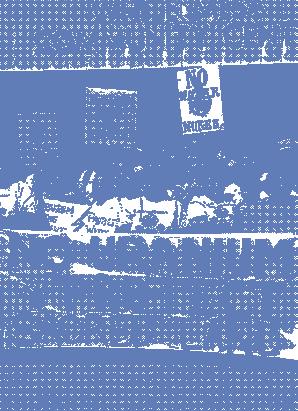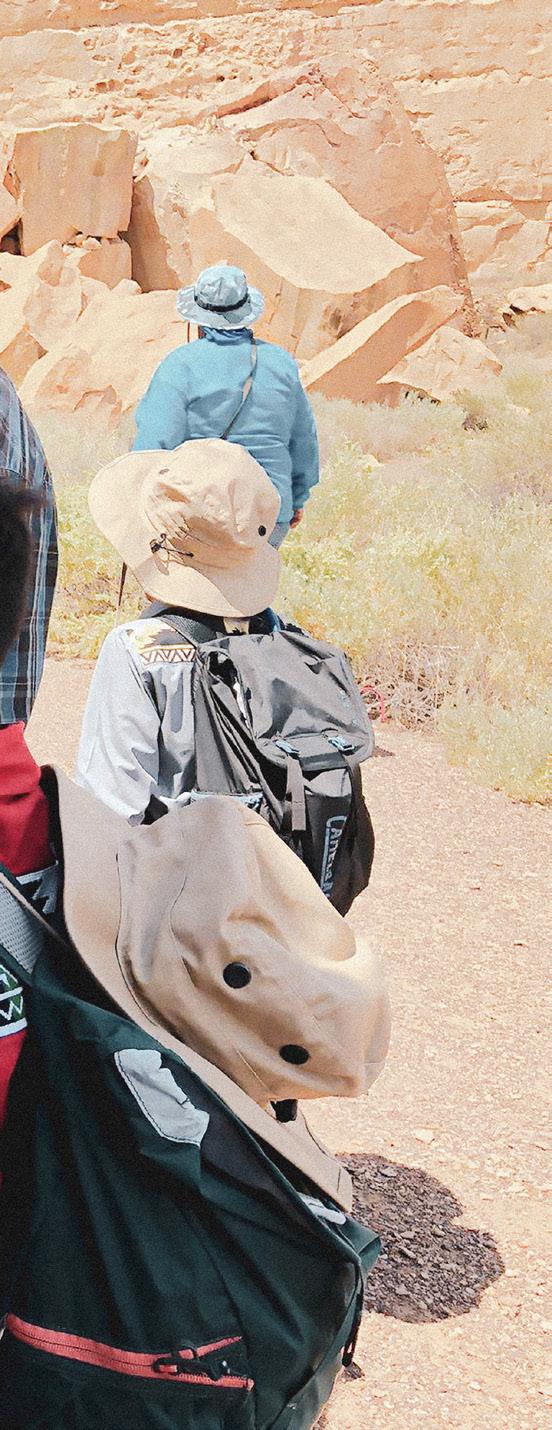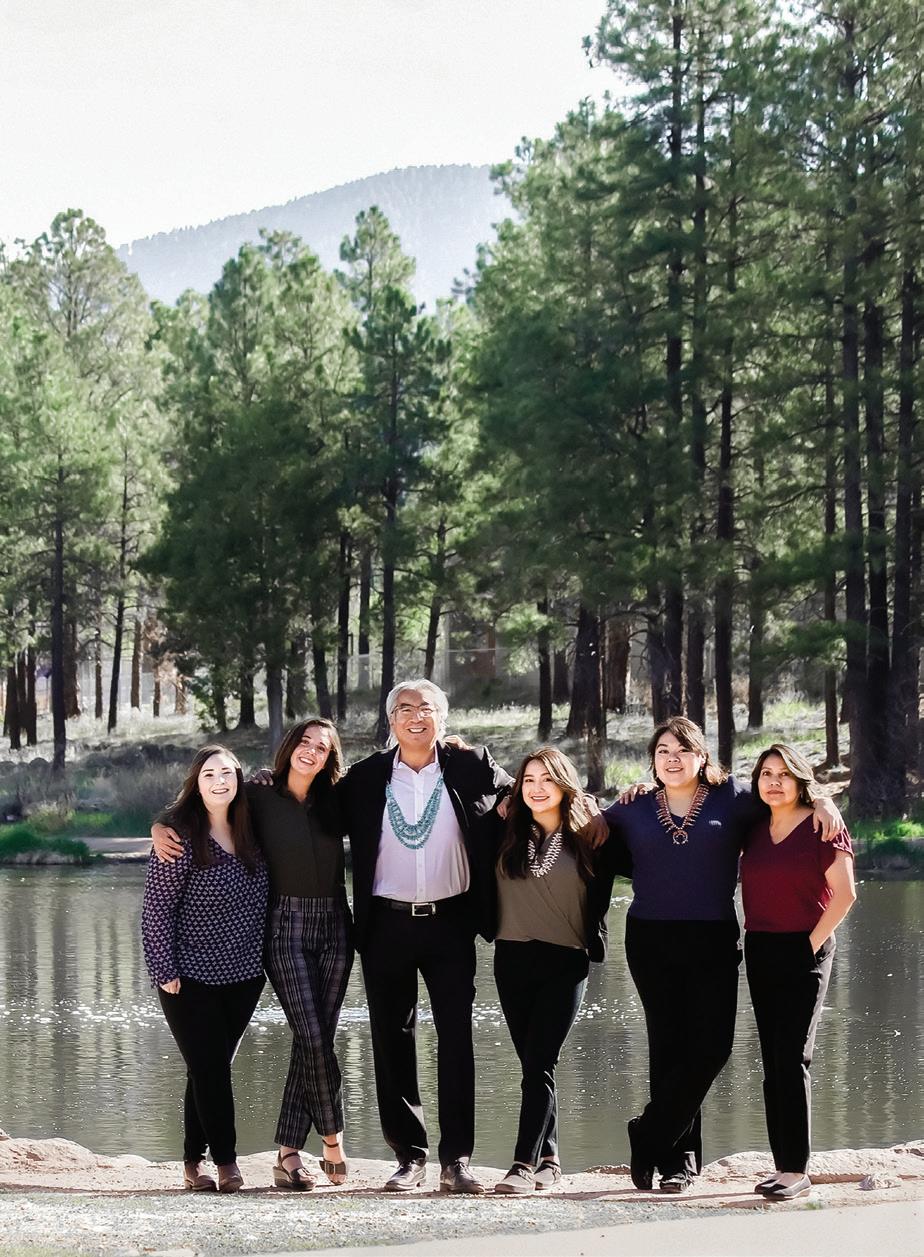10 YEAR CELEBRATION
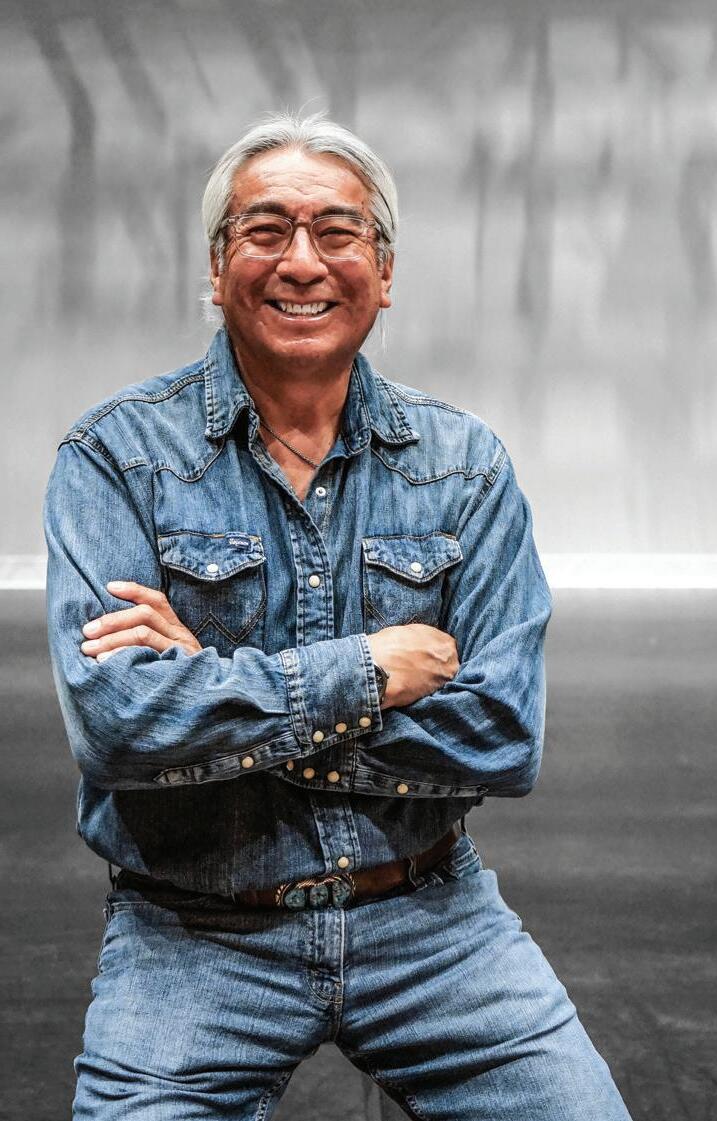
COLORADO PLATEAU FOUNDATION 02 LETTER FROM THE CEO
JIM ENOTE
The number ten is consummate and encouraging. Like when a young person looks at their hands, learns to count to ten, and then ponders how to count more.
The Colorado Plateau Foundation, at this auspicious ten-year juncture, is using this moment to reflect on what we learned. Throughout 2022, the Foundation staff contemplated challenges facing Colorado Plateau Native communities, disparities in philanthropic giving, our grantmaking trends, the power of communication, opportunities, and our next ten years.
Launching the Foundation as a fiscally sponsored organization as a small part-time team was the right way for us to begin. After testing and refining our core operational methods, absorbing the scope of what capacity building means, and learning to evaluate ourselves and not the grantees, we incorporated as a stand-alone Native-led foundation in 2019.
The heart of this compelling work is a capable staff and board that makes inclusion, parity, and transparency an inspiring and motivational part of the organization, creating a unified and highly collaborative team. The Colorado Plateau Foundation is an assessment-rich organization employing
consistent, constructive, and practical feedback from our staff, board, and grantees to enable this extraordinary team to reach its fullest expression.
This report is an abridgment of our first ten years of honorable learning. The next ten years will take the Foundation’s lessons and tie them together to create an informed strategy and blueprint for the sustainability of Native communities throughout the Colorado Plateau.
Jim Enote, CEO of Colorado Plateau Foundation
10 YEAR CELEBRATION 03 LETTER FROM THE CEO
“
One of the first things we learn as humans, with the same fingers that count to ten, is how to tie things together. ”
04 COLORADO PLATEAU FOUNDATION
“
The Colorado Plateau Foundation is an example to all of us for how to nurture, preserve, and build beautiful communities. ”
— Winona LaDuke Economist, Author, and Executive Director for Honor the Earth
Motivated by his experience with discrimination, repression, and asymmetries of power, Jim Enote pledged in 1996 to create a righteous institution that would support Native-led selfdetermination to solve the most complex problems facing Colorado Plateau Native communities.
In 2010, Jim began seeking investors to make the dream a reality.
In 2012 with a small part-time team and seed funding from the David and Lucile Packard Foundation and Christensen Fund, the Arizona Community Foundation agreed to serve as the fiscal sponsor for the Colorado Plateau Foundation. At the same time, the development of procedures and essential operations for grantmaking and grantee capacitybuilding began.
2012 was when the idea met opportunity, and the Colorado Plateau Foundation emerged to become an efficient and effective Native-led philanthropy.
CPF’s funding priorities evolved from asking Colorado Plateau Native leaders what situations on the Plateau deserve the most important consideration. Their consensus was clear:
+ Protection of Water
+ Protection of Sacred Places and Endangered Landscapes
+ Preservation of Language
+ Food Security through Sustainable Agriculture
In 2018 CPF filed for IRS 501(c)3 status and became a stand-alone public charity in 2019. Expeditiously and thoughtfully, an inaugural board developed essential governance policies and practices, and staff became fulltime and grew from three to six.
We live where we serve - This culminating statement about our genuine community grounding defines our team’s credible and practical relationship to the Colorado Plateau and its Native Peoples. We are conversant in the nuances of political, economic, cultural, and social conditions in the communities we know so well. We are of this place.
FUNDING DISPARITY IN THE U.S. for Native America
Native American-led regional initiatives address challenges in innovative and inspiring ways, using community-centered approaches to create meaningful change. At the same time, the philanthropic community underfunds these organizations. Few charitable dollars reach Native communities nationwide, much less on the Colorado Plateau, where vast distances compound access challenges. Analyses of philanthropic data indicate that only .4% of funding dollars go to Native communities, while 68% of philanthropic dollars benefiting Native people go to non-Native-led organizations. Also, 74% of funding for Native Americans is directed to urban initiatives, leaving out the vital work in rural communities.
Even considering the small percentage of Native Americans respective to the United States population (2%), funding to Native communities is disproportionate, topping at a high of 0.6%.
Benefiting Native Americans
BY ISSUE AREA 2015 AND 2016
BY SUPPORT STRATEGY 2015 AND 2016
Source: Candid, 2019. Grants may have multiple support strategies and may therefore by counted in more than one category. A support strategy could not be determined for 15 percent of grant dollars. Excludes grants to grantmaking intermediaries.
07
ISSUE AREA AMOUNT ($) % TOTAL DOLLARS AWARDED # OF GRANTS Program Development 274,701,316 55.6 4,770 General Support 71,789,680 14.5 3,888 Policy, Advocacy, and Systems Reform 71,606,291 14.5 557 Capacity Building and Technical Assistance 47,614,186 9.6 384 Individual Development and Student Aid 22,122,662 4.5 408 Capital and Infrastructure 18,503,241 3.7 237 Research and Evaluation 17,418,035 3.5 134 Network Building and Collaboration 16,777,307 3.4 238 Publishing and Productions 14,717,387 3.0 173 Financial Sustainablity 13,453,915 2.7 135 Public Engagement and Marketing 11,078,479 2.2 150 Leadership and Professional Development 10,752,460 2.2 74
GRANT DOLLARS EXPLICITLY
ISSUE AREA AMOUNT ($) % TOTAL DOLLARS AWARDED # OF GRANTS Culture and Arts 136,325,842 27.6 2,486 Education 115,840,612 23.5 4,031 Health 85,546,742 17.3 903 Human Services 82,518,043 16.7 3,129 Community & Economic Development 75,038,020 15.2 1,215 Human Rights 50,532,624 10.2 862 Environment 36,157,342 7.3 963 Public Affairs 34,886,442 7.1 526 Public Safety 33,709,545 6.8 409 Information & Communications 13,519,892 2.7 216 10 YEAR CELEBRATION
Since the launch of CPF in 2012, more Native youth have come forth, proficient with modern technological tools and motivated by new visions of identity and self-determination.
In the US, the population of people under 39 years old is approximately 50.2% . On the Plateau, the numbers are significantly different. On the Zuni Reservation, 57% of the population is under 39 years old; on the Hopi Reservation, 58% is under 39 years.
Related to technological competency is rapidly expanding high-speed internet service across the Plateau. In 2012 the digital divide was a significant problem. Today, internet service is available to every grantee, and improved bandwidth for many communities on the Plateau is within sight.
Despite shifting politics and potentially unfavorable legislation and policies affecting Native nations, Native youth are growing into competency and leadership. This transfer of authority underlines the rationale and purpose for CPF to continue building organizational, community and individual capacity for generations to come.
Colorado Plateau Foundation values a culturally centered model of giving that meets grantees where they are in their development. We see grantmaking as more than just distributing funds: it is about actively participating in a network and community.
Initially, our grantmaking centered on building capacity to strengthen organizations from within and help them become stable so they can flourish. However, during our third year, grantees began to apply for grants to support community capacity building. We learned that capacity building should apply to organizational development and community development. An example is the application of capacity building for a language program managed by an organization or supporting community language mentors and teachers. Both approaches are justifiable and community-driven.
In 2012, the first year of CPF grantmaking, CPF gave $108,000 to seven organizations. As our financial position strengthened, our grant amounts allowed us to begin making capacitybuilding and general operating support grants to organizations demonstrating steady fiscal capacity and community approval.
In 2022, we gave $780,000 to twenty-one grantees while committing $240,000 to our first multi-year grants. Currently, 50% of our grants are for general operating support.
Since our beginning, we have continued to believe in a unique theory of change that articulates two primary assumptions.
1. That Native peoples on the Colorado Plateau are capable of accomplishing sophisticated and positive change to protect the Plateau environment and cultures, and

2. Protection of the Plateau’s environment and cultures must address asymmetrical power dynamics at all levels of influence and authority.
CPF grants create effective and influential organizations that become better equipped to prove that both assumptions are valid.
But we do more than get grants out the door. In 2013 CPF began our Learning Community, an annual grantee convening that allows us to meet with CPF grantees collectively, learn more about what works for them as cohorts, and enables them to collaborate in a regional network. CPF’s approach to site visits, Learning Journey, started in 2018 as a distinctive way to meet our grantees at their workspace. Learning Journey allows grantees to learn about themselves as much as we learn about them. We learn their entire story, theory of change, community history, and how they struggled and eventually evolved to create solutions.
COLORADO PLATEAU FOUNDATION 08
OUR
Grantmaking Opportunities
As of November 2022, our total assets are projected to be more than 5 million dollars.
Grant awards for 2022 totaled $1,020,000.
THE NEXT TEN YEARS
Our team is serious and capable. Our financials are stable and solid. We have experienced, and practiced leadership, an engaged board, clear plans and governance to guide us, and a sublime conviction inherited from hundreds of generations that came before us.
We are no longer emergent and have the authority and energy to contribute to a better future for Native communities on the Plateau. Our future strategy will comprehensively identify gaps in structures that aid Plateau communities, strengthen effective designs, clarify achievable solutions to problems, and anticipate shifts in access to resources and channels of influence. But there needs to be more.
Social, economic, and political divisions are growing throughout the world. Accordingly, a blueprint for the Plateau’s sustainability, particularly for Native communities on the Plateau, will require higher-order strategies to unify people and resources and build new alliances in uncommon and alternative ways.
We perform best in an assessment-rich environment and will continue to contribute as a beacon for community-minded strategies for Native communities on the Plateau.
In the arc of our ten-year history, the Colorado Plateau Foundation has experienced tremendous change. Once a fiscally sponsored venture, CPF obtained 501(c)3 status only four years ago.
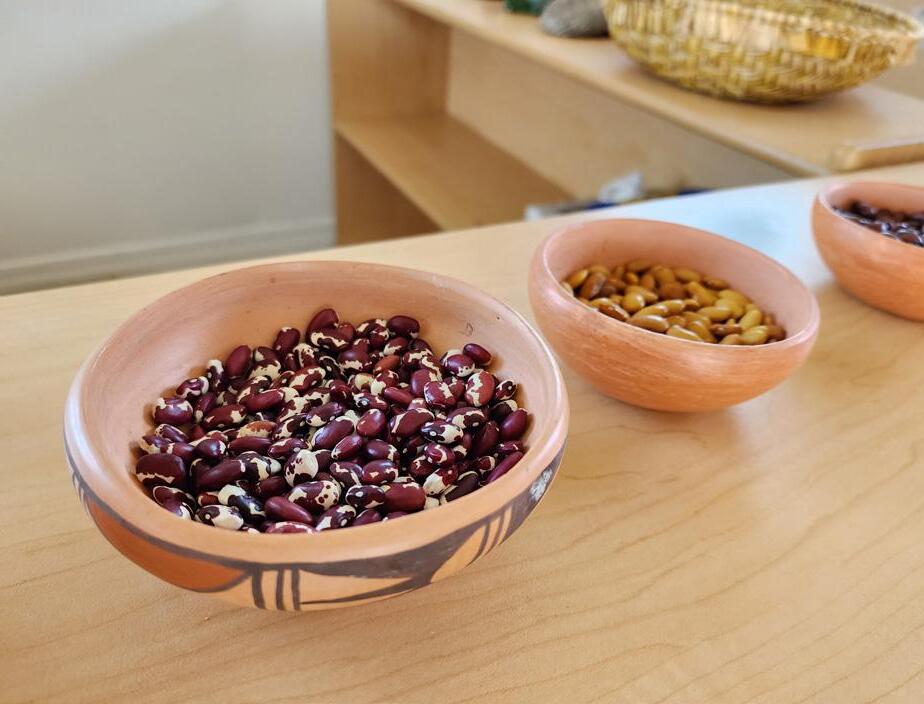
COLORADO PLATEAU FOUNDATION 18
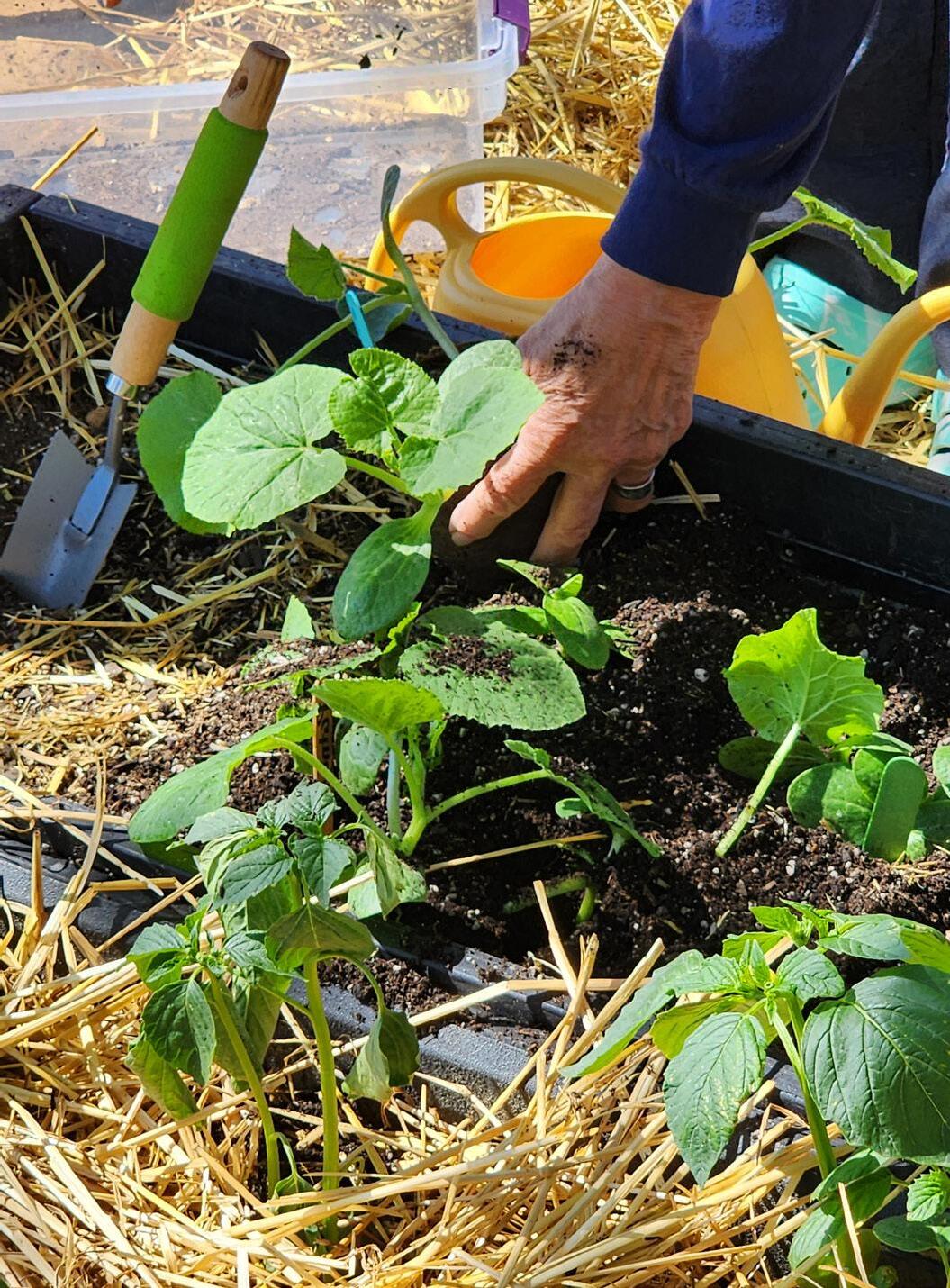
2012 CPF GRANT AWARDS
Organization Name
The Zuni Youth Enrichment Program
Native Movement-Peace and Balance Movement
Navajo Nation Department of Agriculture
Mesa Media, Inc.
Native Movement-Black Mesa Water Coalition
The Hopi School
Tolani Lake Enterprises
2013 CPF GRANT AWARDS
Organization Name
The Zuni Youth Enrichment Program
Tolani Lake Enterprises
Acoma Learning Center
Painted Desert Demonstration Projects, Inc. North Leupp Family Farms
Mesa Media, Inc.
Hualapai Department of Cultural Resources
Painted Desert Demonstration Projects, Inc. Hopi Tutskwa Permaculture
Hualapai Department of Cultural Resources
Native Movement-Black Mesa Water Coalition
Grant Focus
Community Health
Protection of Water, Sacred Places, Language, Health
Community Health
Language
Community Health
Language
Community Health
Grant Focus
Sustainable Agriculture
Protection of Water
Language
Sustainable Agriculture
Language
Language
Sustainable Agriculture
Protecting Water
Protecting Water
Black Mesa Trust Protection of Water
Tolani Lake Enterprises-14R
2014 CPF GRANT AWARDS
Organization Name
Koahnic Broadcast Corporation
North Leupp Family Farms
Ramah Navajo School Board Inc
Utah Dine Bikeyah
Tolani Lake Enterprises
The Zuni Youth Enrichment Program
Tolani Lake Enterprises-14R
Acoma Learning Center
Black Mesa Trust
Painted Desert Demonstration Projects, Inc.-Hopi Tutskwa
Upper Village of Moenkopi
2015 CPF GRANT AWARDS
Organization Name
Hualapai Tribe
Dine Be Iina, Inc.
Native Movement-Black Mesa Water Coalition
Black Mesa Trust
WORK IN BEAUTY INC
Tolani Lake Enterprises
Moenkopi Developers Corporation
Mesa Media, Inc.
Koahnic Broadcast Corporation
Utah Dine Bikeyah
Sustainable Agriculture
Grant Focus
Protection of Water, Protection of Sacred Places, Sustainable Agriculture, Language
Sustainable Agriculture
Protection of Sacred Places
Protection of Sacred Places
Protection of Water
Sustainable Agriculture
Sustainable Agriculture
Language
Protection of Water
Sustainable Agriculture
Sustainable Agriculture
Grant Focus
Language
Sustainable Agriculture
Protecting Sacred Places
Protection of Water
Sustainable Agriculture
Sustainable Agriculture
Language
Language
Protecting Sacred Places
Protecting Sacred Places
COLORADO PLATEAU FOUNDATION 20
GRANTEE LIST BY YEAR
2016 CPF GRANT AWARDS
Organization Name
Mesa Media, Inc.
Black Mesa Trust
Hopi Tutskwa Permaculture Institute
White Mountain Apache Tribe-Ndee Bikiyaa, The People's Farm
Tolani Lake Enterprises
Tolani Lake Enterprises-Many Farms
Advancing Communities Foundation
Acoma Learning Center
Utah Dine Bikeyah
Ramah Navajo School Board Inc
Native Movement-Black Mesa Water Coalition
Conservation Legacy-Acoma Farms Corps
Grant Focus
Language
Protection of Water
Sustainable Agriculture
Sustainable Agriculture
Sustainable Agriculture
Sustainable Agriculture
Protection of Water
Language
Protection of Sacred Places
Sustainable Agriculture
Protection of Sacred Places
Sustainable Agriculture
Greenaction for Health and Environmental Justice-White Mesa Concerned Community Protection of Water
2017 CPF GRANT AWARDS
Organization Name
Advancing Communities Foundation
Hopi Tutskwa Permaculture Institute
White Mountain Apache Tribe-Ndee Bikiyaa, The People's Farm
Conservation Legacy
Conservation Legacy
Covenant Pathways
Pueblo of Acoma-Acoma Learning Center
Utah Dine Bikeyah
Hualapai Tribe
Uranium Education Coalition
Zuni Youth Enrichment
Native Movement-Black Mesa Water Coalition
Greenaction for Health and Environmental Justice-White Mesa Concerned Community
2018 CPF GRANT AWARDS
Organization Name
Pueblo of Acoma-Acoma Learning Center
Advancing Communities Foundation
Black Mesa Trust
Black Mesa Water Coalition (Native Movement)
Conservation Legacy, Southwest Conservation Corps Ancestral Lands
Covenant Pathways
Hasbidito (Rio Puerco Alliance)
Hopi Tutskwa Permaculture Institute
Hualapai Tribe, Cultural Resources Department
Ita Hopi Lavayi (Terra BIRDS - Fiscal Sponsor)
Mesa Media, Inc.
Ndee Bikiyaa (White Mountain Apache Tribe)
Tolani Lake Enterprises, Inc.
Utah Dine Bikeyah
Zuni Youth Enrichment Project
Grant Focus
Protection of Water
Sustainable Agriculture
Sustainable Agriculture
Sustainable Agriculture
Sustainable Agriculture
Sustainable Agriculture
Language
Protection of Sacred Places
Language
Protection of Water
Sustainable Agriculture
Protection of Sacred Places
Protection of Water
Grant Focus
preservation of language
protection of water
protection of sacred places
All Four Priority Areas
protection of sacred places
protection of water and sustainable community-based agriculture
sustainable community-based agriculture
sustainable community-based agriculture
preservation of language
protection of language
preservation of language
sustainable community-based agriculture
sustainable community-based agriculture
preservation of sacred places
preservation of language and sustainable community-based agriculture
10 YEAR CELEBRATION 21
GRANTEE LIST BY YEAR
2019 CPF GRANT AWARDS
Organization Name
Acoma Learning Center
Advancing Communities Foundation
Grant Focus
preservation of language and sustainable community-based agriculture
protection of water
Black Mesa Trust protection of sacred places
Bears Ears Inter-Tribal Coalition, Resource Legacy Fund
Conservation Legacy, Southwest Conservation Corps Ancestral Lands
Covenant Pathways
Dine’ Citizen’s Against Ruining our Environment
Hopi Tutskwa Permaculture Institute
Hopivewat Learning Center, Inc.
Ita Hopi Lavayi, Terra BIRDS
Ndee Bikiyaa
Tolani Lake Enterprises, Inc.
Utah Dine Bikeyah
protection of sacred places, water, preservation of language, and sustainable community based agriculture
sustainable community-based agriculture
protection of water and sustainable community-based agriculture
protecting sacred places, water, and sustainable community-based agriculture
sustainable community-based agriculture
protectiono of sacred places and preservation of language
protection of language
sustainable community-based agriculture
sustainable community-based agriculture
preservation of sacred places
White Mesa Concerned Community, Green Action for Health and Environmental Justice sacred places, water
Zuni Youth Enrichment Project
2020 CPF GRANT AWARDS
Organization Name
Acoma Learning Center
Americans for Indian Opportunity
Arizona Ethnobotanical Research Association / Ita Hopi Lavayi
preservation of language and sustainable community-based agriculture
Grant Focus
preservation of language and sustainable community-based agriculture
preservation of language
preservation of language and sustainable community-based agriculture
Black Mesa Trust all areas
Covenant Pathways
Flower Hill Institute
Hopi Tutskwa Permaculture Institute
Hualapai Department of Cultural Resources
Indian Pueblo Cultural Center, Inc.
Native American Cancer Research
Native Americans for Community Action
Ndee Bikiyaa, The People's Farm
Southwest Organizing Project / Pueblo Action Alliance
The Hopi Foundation / Natwani Coalition
Tolani Lake Enterprises, Inc.
Utah Dine Bikeyah
Zuni Youth Enrichment Project
protection of water and sustainable community-based agriculture
sustainable community-based agriculture
sustainable community-based agriculture
preservation of language
sustainable community-based agriculture
protection of water
sustainable community-based agriculture
sustainable community-based agriculture
protection of water, sustainable community-based agriculture
preservation of languages, sustainable community-based agriculture
sustainable community-based agriculture
protection of sacred places
preservation of language and sustainable community-based agriculture
2020 DISCRETIONARY AND CAPACITY BUILDING GRANT AWARDS
Organization Name
Ancestral Lands ConservationCorps
Grant Focus
sustainable community-based agriculture
Uplift protection of sacred places
White Mesa Concerned Community sacred places, water
2021 CPF GRANT AWARDS
Organization Name
Ancestral Lands Conservation Corps
Grant Focus
protection of water, sustainable community-based agriculture
Black Mesa Trust protection of water, sacred places, and language
Chinle Planting Hope
food security
COLORADO PLATEAU FOUNDATION 22
GRANTEE LIST BY YEAR
2021 CPF GRANT AWARDS
Organization Name
Grant Focus
Conservation Legacy Southwest Conservation Corps, Ancestral Lands Conservation Corps sustainable community-based agriculture
Covenant Pathways food security sustainable community-based agriculture
Fundamental Needs Inc
Indian Pueblo Cultural Center Inc
food security
food security sustainable community-based agriculture
Indigenous Knowledge Collective preservation of languages
Keres Childrens Learning Center
National Indian Youth Leadership Development Project Inc
Ndee Bikiyaa, The People's Farm
preservation of language
food security sustainable community-based agriculture
food security sustainable community-based agriculture
The Seventh Generation Fund for Indigenous Peoples Inc, Tutskwat Oqawtoynani protection of sacred places and endangered landscapes, food secuirty through sustainable community-based agriculture
Social and Environmental Entrepreneurs Inc, Uplift
protection of water, protection of sacred places and endangered landscapes
Hopi School Inc, Hopitutuqaiki preservation of language
Tolani Lake Enterprises Inc
food security sustainable community-based agriculture
Utah Dine Bikeyah protection of sacred places and endangered landscapes
The Zuni Youth Enrichment Project
2022 CPF GRANT AWARDS
protection of water, preservation of languages, food security through sustainable communitybased agriculture
Organization Name Grant Focus
Arizona Ethnobotanical Research Association, Ita Hopi Lavayi
Black Mesa Trust
Chinle Planting Hope
Conservation Legacy, Ancestral Lands Conservation Corps
Preservation of language
Protection of water, sacred places, and language preservation
Sustainable community-based agriculture
"Sustainable community-based agriculture, protection of sacred places and water”
Covenant Pathways Sustainable community-based agriculture
Flower Hill Institute
Fundamental Needs Inc
"Green Action for Health and Environmental Justice, White Mesa Concerned Community”
Hopi Tutskwa Permaculture Institute Inc
Hozho Voices Of Healing Center Inc
Keres Children's Learning Center
Ke'yah Advanced Rural Manufacturing Alliance
KUTE Inc, KSUT Tribal Radio
National Indian Youth Leadership Development Project Inc
Navajo Way Inc
Ndee Bikiyaa, The People's Farm
"Seventh Generation for Indigenous People's Fund, Tutskwat Oqawtoynani”
Social and Environmental Entrepreneurs, Uplift
The Hopi School Inc, Hopitutuqaiki
Zuni Youth Enrichment Program
“Sustainable community-based agriculture, protection of water and sacred places”
Sustainable community-based agriculture
Protection of Sacred Places and Water
Protection of water and sustainable community-based agriculture
All four focus areas
Preservation of language
Protection of water, preservation of languages, and sustainable community- based agriculture
Protection of water
Sustainable community-based agriculture
Preservation of language
Sustainable community-based agriculture
Protection of water, sacred places, and sustainable community-based agriculture
Protection of sacred places and water
Preservation of language
"Sustainable community-based agriculture, protection of water, and preservation of language”
10 YEAR CELEBRATION 23
GRANTEE LIST BY YEAR



